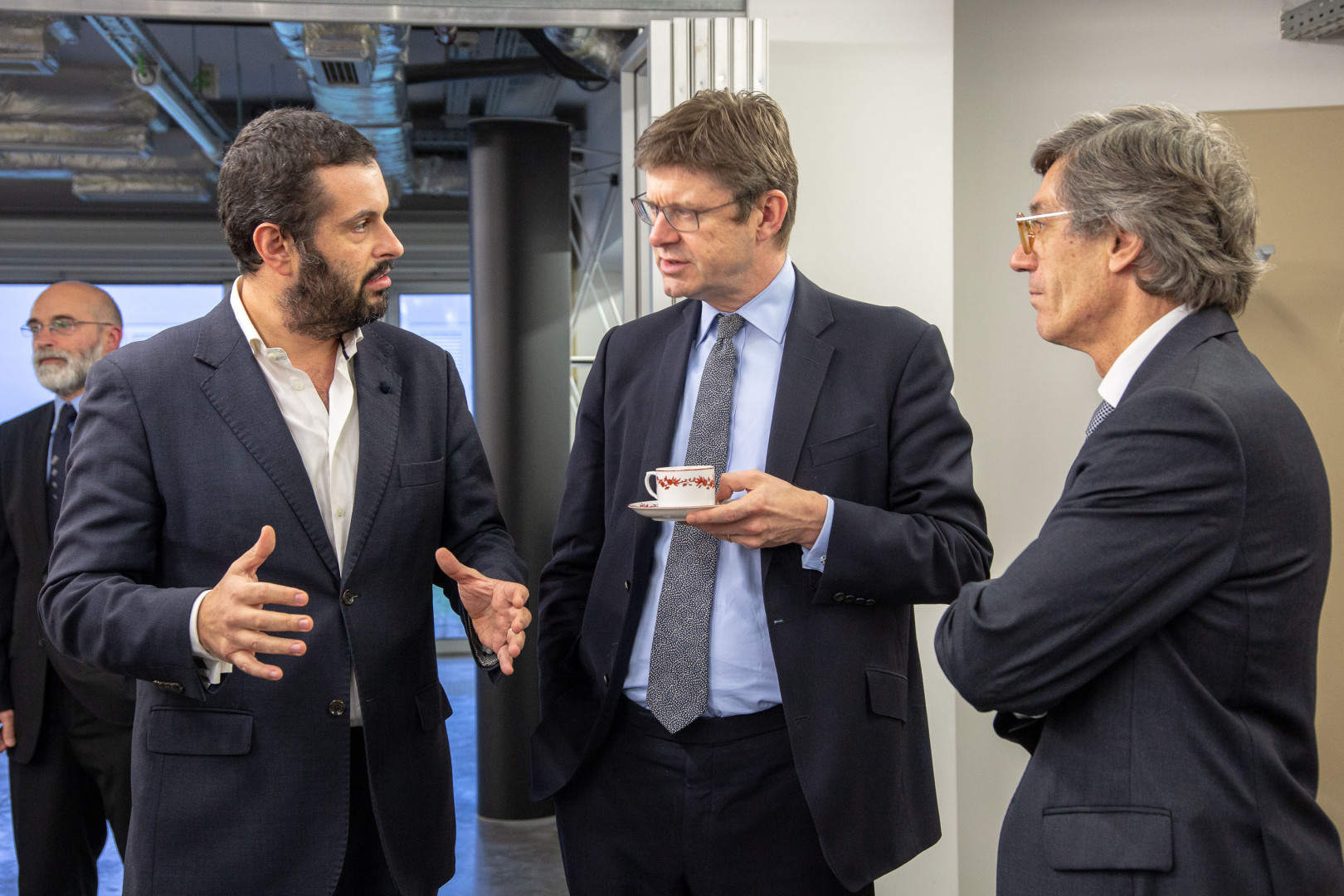British Secretary of State visits INESC TEC to debate research and the industries of the future
Greg Clark, British Secretary of State for Business, Energy and Industrial Strategy, was at INESC TEC searching for scientific and engineering expertise, not only from the fundamental science point of view, but also for support in creating startups.
30th November 2018
Responsible for the development of the economic policy of the United Kingdom, whose main goal is described in the industrial strategy, the British Secretary of State is focused on areas that are considered relevant for the short and medium-term of the British Government, in which artificial intelligence and big data are represented. The remaining areas focus on the ageing of society, sustainable growth and the future of mobility.
Considering the priorities of the Secretary of Sate, as well as his former experience with the science portfolio, the British Government showed interest in knowing INESC TEC and its expertise in several fields of mutual interest for both countries.
The purposes of the visit
During the visit of 23 November, the British Secretary of State declared that the commitment to create startups is part of the industrial strategy of the United Kingdom and since he was familiar with INESC TEC's work in this area, he believed it was a good opportunity to create closer ties with the institution. Since 1989, INESC TEC launched 19 spinoffs to the market.
“Technology transfer to the market is one of the mottoes of our institution. In 2018 alone, we have launched four spinoffs to the market: SafeCloud Technologies, Ubirider, iHandU and WeSENSS. These numbers clearly show our strategy in this area”, explains José Manuel Mendonça, Chairman of INESC TEC's Board.
According to the British Secretary of State, “INESC TEC has an excellent reputation in the United Kingdom, and for that reason, I wanted to meet an institution which has a very similar agenda to the one of the United Kingdom, regarding the reposition of the industries of the future, not only through research, but also through applications and by creating startups”.
The visit began by presenting INESC TEC’S Laboratory of Smart Grids and Electric Vehicles, followed by a closed meeting.
Besides the Secretary of State Greg Clark, Christopher Sainty, British Ambassador to Portugal, Tim Figures, Adviser to the Secretary of State and Hugo Marques, Head of Economics and Prosperity were present, representing the British Government. Representing the Portuguese institutions, besides the Chairman of INESC TEC, José Manuel Mendonça, and the Members of the institution José Carlos Caldeira, Rui Oliveira and Luís Seca, António Ferreira, Member of the Executive Board of FEUP, Luís Miguel Pinho, Pro-President of the Polytechnic Institute of Porto, Clara Gonçalves, Executive Director of UPTEC, Paulo Santos, CEO of Ubirider and João Paulo Cunha, CEO of iHandU, were also present.
Greg Clark was impressed by the existing multidisciplinary of the institution
Even though the British Secretary of State already knew INESC TEC, he didn’t hide the fact that he was very impressed with what he saw and heard.
“I was very impressed with the degree of collaboration across disciplines, across institutions, between the different levels of research – from the very pure scientific research to the applications in industry. This is a real powerhouse, with a lot of different departments and teams coming together, so the whole is greater than the sum of the parts”, declared the Secretary of State for Business, Energy and Industrial Strategy of the United Kingdom at the end of the visit.
The partnerships of INESC TEC with institutions of the United Kingdom
Over the years, INESC TEC has already established partnerships with more than 60 British institutions in several fields of competence from the telecommunications and multimedia to technology transfer, computer science, power and energy and artificial intelligence. These partnerships were formalised in different ways, whether through collaboration in European projects, or through direct provision of services or even through the publication of scientific papers. Some of the UK’s entities with which INESC TEC has already established partnerships are BBC, Fujitsu, General Electric and Imperial College London.
The researchers mentioned in this news piece are associated with UP-FEUP U.Minho and IPP-ISEP.


